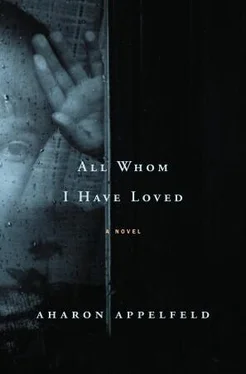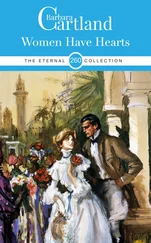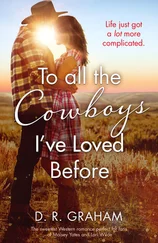“Come, I'll show you the Prut.” I tried to extricate her from her confusion.
“But it's raining.”
“We'll put our coats on.”
Reluctantly, she put on her coat and we went out.
The Prut was now a dark brown; it cast its heavy waves against the bank. This was my mother, and yet she was so different. The heavy coat made her look shorter, and her long arms seemed truncated. We stood and watched for a short time. There was no beauty in the sight. The wet wind lashed at our faces. “Let's go inside, otherwise we'll be soaked to the bone,” she said. She was wearing rural galoshes that made her legs look thicker.
We sat at the table, and Mother took out the gifts she had brought in her bag: a particularly large set of dominos, a pack of cards, and, best of all, Suchard chocolate.
“How do you spend all your time, my dear?”
“I read.”
“What do you read?”
“Father's books.” I tried to impress her.
“They're very hard books,” she said, as if she had caught me attempting something that was beyond me. To tell the truth, I didn't like her inflection.
“You've changed.” The words just slipped from my mouth.
“In what way?”
“I don't know.”
Mother took some sandwiches out of her bag and then immediately removed them from the wax paper in which they had been wrapped. I remembered Mother's sandwiches. That's how she used to prepare them in our home in Czernowitz, and after that in Storozynetz. There was something of her grace in them. I immediately bit into one.
“I've come to fetch you,” she said.
“To where?”
“To Storozynetz.”
“No,” I wanted to say but stopped myself.
Mother must have sensed my refusal, for she said, “I've found a nice girl, like Halina.”
“And Halina isn't coming?” I interrupted her.
“What are you talking about, my dear?”
“I'm sorry.”
She said nothing about André or the wedding. There was no need to say anything; the expression on her face said it — that she was now married to André, preparing meals for him, washing his shirts, and laughing with him. But her face was not happy. It was somewhat frozen, and the more I stared at it, the more frozen it seemed, as if the tiny veins of happiness had been drained from it. She was the mother that I had once loved, and yet not. We sat without talking.
“We'll pack your clothes and go back home,” she said in a whisper.
“I don't want to go,” I replied in a clear voice.
My words must have astonished her; she put her right hand to her mouth and her eyes lost their luster.
“I love the river.” I tried to soften it.
“And you don't want to come with me?”
“Not now.”
“I understand,” she said, and her eyes moved slightly.
Then she put on her coat and closed her bag. She didn't try to convince me, not even by so much as a word. I knew that I was being cruel to her, but I also knew what I wanted, and nothing in me stirred toward her.
“I won't force you,” she said as she buttoned her coat. She must have expected me to waver, but I didn't.
The falling rain struck the door and the windows, darkening the room. “It's raining,” I said, trying to keep her from going.
“Never mind,” she said, lifting her collar. She kissed my forehead and went out.
I stood in the doorway and watched her grow distant. She made her way heavily, as if leaving a place she found distasteful.
“Mother!” I called, but my voice couldn't have reached her. I kept calling, my voice choking. I put on my coat and ran after her, but the rain and the mud dragged me down and I turned back. I sat at the window and waited for her to return. It was clear that she wouldn't, but with my thoughts I still tried to will her back to me.
Throughout the long hours of the afternoon I sat at the window, waiting for Mother to return. When it got dark, I heard footsteps approaching; it was Father. Father came back in good spirits. He had had a few drinks on the way home, and the moment he walked in, he announced, “Dinner should be lavish.” I was happy, too, and forgot to tell him about Mother's visit. I told him later.
“And what did she want?” he asked lightly.
“To take me back with her.”
“I understand. And what did you say?”
“I refused.”
“And what did she say?”
“Nothing.”
Father did not scold me, and he did not praise my behavior. We sat up till late, he on the bed and I on the floor. Father read intently and I watched, observing how his eyes raced from line to line. When he read, he looked like a man who is searching. Sometimes he seemed to be searching for something he lost many years ago. I noticed that when he finished reading, he made a gesture of dismissal with his right hand, as if to say, “It's all nonsense.”
That night he revealed to me that Mother had married and was living in André's house. It was hard to know if he was angry. Whenever he spoke about Mother, he was careful, and it was clear he did not reveal all his thoughts to me.
“Has she become Christian?” I asked for some reason.
“Supposedly,” he said.
“But we are Jews, aren't we?”
“True.”
Then I remembered what our landlord had said, and my heart was sore. I tried to remember it in detail, but I couldn't. Later, I recalled a bit and asked, “Is it true that Jews are the sons of kings?”
“Who told you that?” Father laughed quietly.
“The landlord.”
“He lives in a world of his own.”
“Jews are like everyone else?”
“A little less,” Father said, and chuckled again.
I was indignant that Mother had converted. “Why did she convert?” I asked.
“Because she married André.”
Later, I could see her before me: her cropped hair, her legs in their heavy galoshes, and the difficulty she had in walking. The expression on her face was that of a person whose thoughts had been uprooted, with other thoughts implanted in their place. We talked no more that night. Father read and I leafed through his art books. I didn't understand most of the things that I read in Father's books, but I still liked to go through them. Sometimes I wanted to ask him the meaning of a word, but I didn't. Once, he blamed me for interrupting his reading.
One morning when I was looking through his books I saw Father's name and I gasped. I read it again: Arthur Rosenfeld. On the facing page there was a photo of him when he was young. Father, it turned out, was born in Czernowitz in 36905. His parents died when he was five years old, and he grew up in an orphanage. It was at the orphanage that his talent was recognized, and he was sent to study at the Academy for Fine Arts. When he was fifteen, there was an exhibition of his work at the celebrated Leonardo da Vinci Gallery; the exhibition traveled to Vienna and then on to Salzburg. Two years later, he exhibited at the Cézanne Gallery, then back in Czernowitz, and then on to Vienna and other major cities. “A remarkable artist whose marvels we'll likely see more of in the future,” ran a line from that paragraph. I read it again and again, unable to believe my eyes.
In the evening Father returned tired and depressed, his face dark and somber. It was clear that he had had several drinks, but they didn't relieve his depression. When Father was depressed his face became taut and his jaw clenched; the sockets of his eyes darkened and his eyes seemed to sink into them. He prepared our evening meal without uttering a word.
I sit at home looking through a book on the history of art. The word “expressionism” crops up on almost every page. It's as if it's a magic word, and if I knew how to pronounce it, I'd be enlightened, and wiser. Two of Father's drawings are in the book. In the first you can make out utensils and fruit, and in the second, a young woman wearing a wide-brimmed straw hat. The woman looks like Mother, not the Mother who was here some days ago, but the Mother who was with me over the summer vacation by the tributary of the Prut.
Читать дальше












